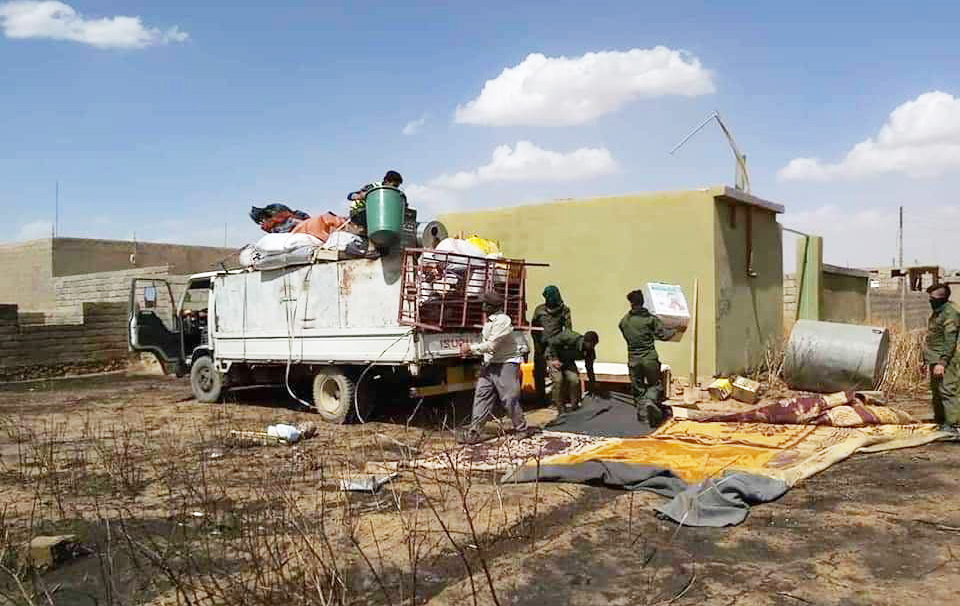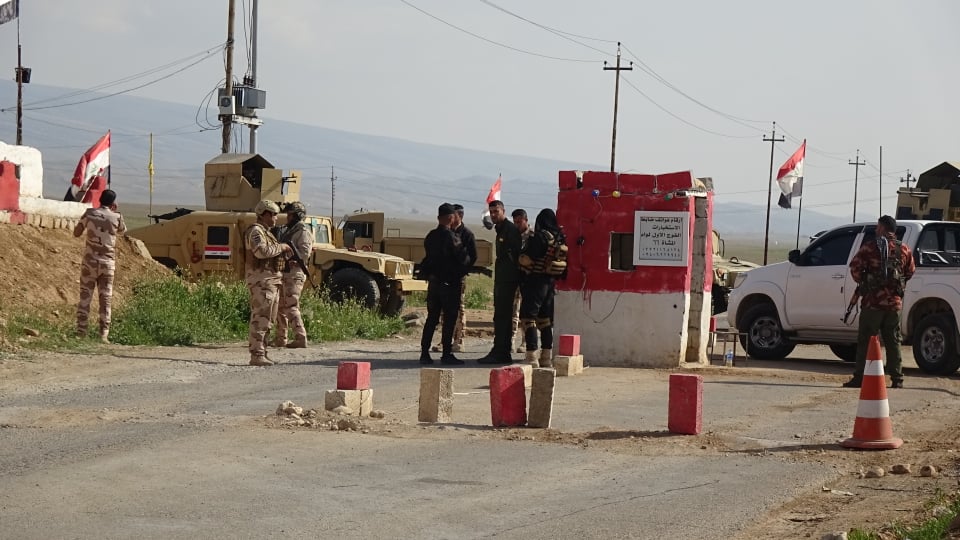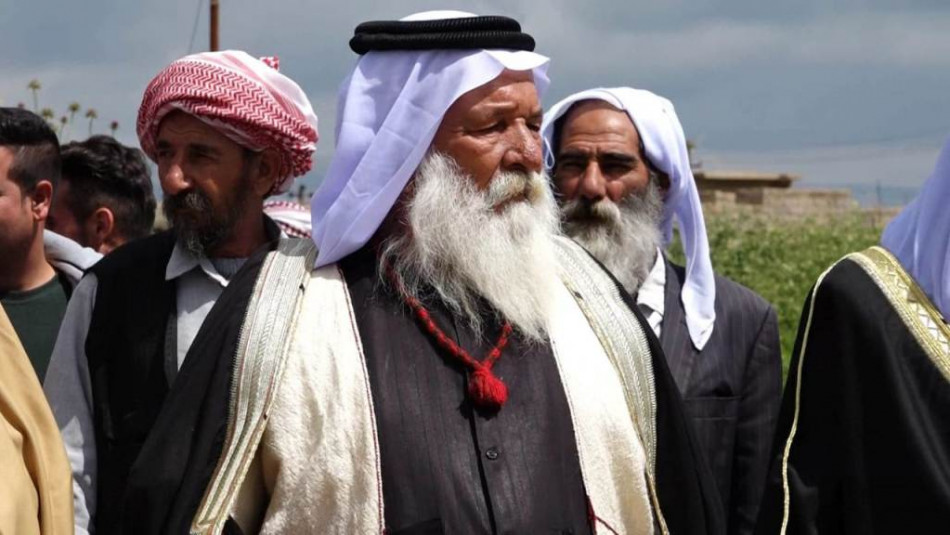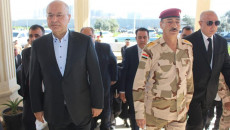The residents of Gir Ouzer (Al-Qahtaniya) sub-district of Shingal district must travel to Duhok to complete any state documents, while the district has two mayors and local administrations.
A district governor and his entire administration have been stationed in Duhok province for several years, while another acting mayor is at office in town yet “without any authority”.
“Despite the two administrations, we have to visit Duhok or Mosul for any transaction,” Faisal Ezdu Elias, a resident of Gir Ouzer, said.
Gir Ouzer sub-district in southwestern Shingal (Sinjar) is over three-hours drive by car from Duhok and more than two hours to Mosul, center of Ninewa Province.
“Whenever we visit Duhok to complete our transactions, we need at least 40,000 dinars ($30) only for transportation, in addition to other expenses,” he said. Elias was displaced up to 2021, living under tent in one of tens of camps for the internally displaced people IDPs in Duhok. He returned home in 2021 and work as volunteer lecturer at a primary school.
We don't want our people to travel three hours for a signature
Like most other areas of the war-torn Shingal, Gir Ouzer has two administrations; One is temporary in the city center, formed in 2017 after the events of October 16 when the Iraqi forces ousted the Kurdish Peshmerga and took over control over the disputed territories between Baghdad and Erbil, following the Kurdish referendum for independence, which forced armed groups and administrative officials affiliated to Kurdish parties to flee to the Kurdistan Region of Iraq KRI.
The administration based in town is not officially recognized by neither by the Iraqi government nor the Kurdistan Regional Government KRG.
The Gir Ouzer administration, which was formed in the last provincial council elections, has been working in Duhok for five years.
"We don't like our people to have to wait three hours for a signature to be processed," said Khidir Khudeda Rasho, the mayor of Gir Ouzer, who works in Duhok. “The regional neighbor countries are interfering in the affairs of Shingal, so the problems will remain unresolved.”

The formation of the new administration for the Ezidi region is a key part of the Shingal agreement between the two Iraqi federal governments and the KRG, which was signed in October 2020 to reorganize the administrative, security and development of the district, but no points have been implemented.
The Ezidi community constitutes 30% of the 664,000 Internally Displaced Person IDPs in the adjacent Iraqi Kurdistan Region, while the fate of more than 2,000 Ezidis is still unknown after they were abducted and enslaved by the militants of the Islamic State of Iraq and Syria (ISIS) in August 2014.
The district of Shingal, 120 km west of Mosul, administratively affiliated to Ninewa province, and part of the disputed territories between Baghdad and Erbil, is home to over 300,000 Ezidis.
Khudeda Hassan, acting mayor of Gir Ouzer, who works in the district center, said, “I have no authority as a mayor and representative of the people, while I have 20 years of service. Now, I receive international delegations and representatives of organizations.”
"The administration of Shingal and Ninewa should give me authority to handle the affairs of the citizens, but this has not been done and the citizens are forced to visit Duhok or Mosul for a signature," Hassan said.
it’s not fair for people to reach Duhok and other places for a transaction
Following the sectarian violence, the emergence of the Islamic State of Iraq and Syria ISIS and the war against it, resulted in lack of stability, security and reconstruction in the war ravaged-province of Ninewa, particularly in Sinjar where several armed groups are deployed beside the Iraqi Security Forces ISF.
In addition to two mayors, The Democratic Autonomous Administration of Shingal, was elected by parties and groups affiliated to the Kurdistan Workers' Party (PKK), which is fighting Turkey since 1980s and holding territories in Iraq, in 2015 as a project to manage Shingal.
“The person in place of the mayor has no authority and the mayor in Duhok has not returned. This is a problem for the citizens and it’s not fair for people to reach Duhok and other places for a transaction,” a local told KirkukNow on the condition of anonymity.
Gir Ouzer is still devastated by the war and most government offices have not been opened, so no displaced families returned until July 2019, while the district was recaptured in 2015.
“The person who is currently working in the district administration building is our employee and we have appointed him to be there so that other parties do not appoint anyone else for the task. The people of Gir Ouzer should visit us, not anywhere else,” the mayor based in Duhok affirmed.

In the latest position of the federal government about the issue, the Prime Minister Mustafa al-Kadhimi last week promised to form a new administration for the district through the implementation of the Shingal agreement, following a meeting with a delegation from Shingal.
Fahad Hamid, the acting mayor of Shingal district, who took office in 2017 and works in the center of the district, told KirkukNow that the Ninewa provincial administration should solve the problem by appointing a new mayor.
In the Ezidi-dominant region of Shingal, only three thousand square kilometers, Baghdad federal and Erbil regional governments compete to establish their rule following the claimed defeat of IS in 2017: three local administrations want to administer the district, and eight different armed groups are deployed.
There are more than eight different armed groups within the borders of Shingal district, including the pro-Iran Shiite paramilitary Popular Mobilization Forces PMF, Ezidikhan Asayish (security), Yabsha, the local police, the federal police, the Iraqi army, the Ezidkhan Peshmerga and the KRG Peshmerga (Kurdish fighter) forces.
According to the Shingal agreement concluded between the Iraqi federal government and the Kurdistan Regional Government KRG in October 2020 to reorganize the administrative, security and service file in the Shingal district, the local police, the intelligence service and the National Security Service NSS, in coordination with the security forces of the KRG will be assigned to manage the security file of Shingal while the armed forces of the federal government will be deployed in the outskirts of the.
As for the forces close to the PKK and the PMF, they will not be given any security or administrative role in the judiciary, and they must evacuate the area.
The Shingal agreement was hailed by the Iraqi government, the KRG, the Unites States and the United Nations UN yet it was firmly rejected by the pro-PKK groups.






